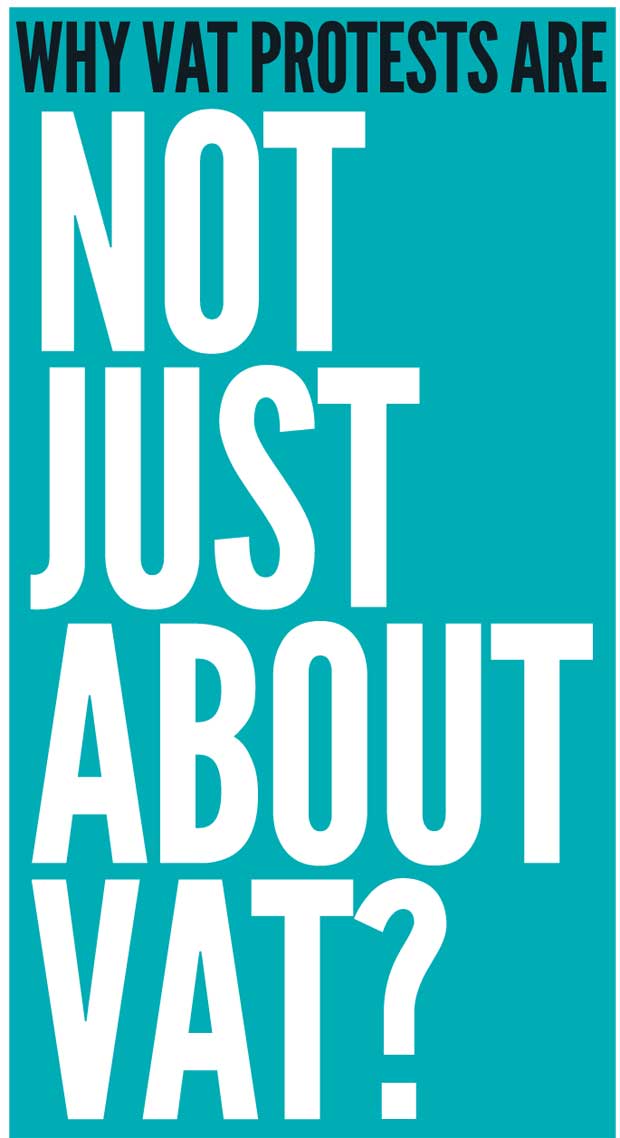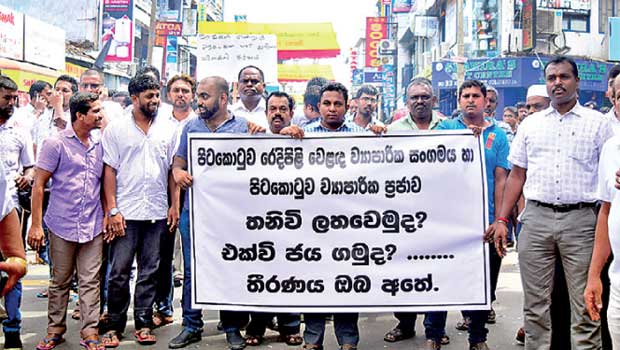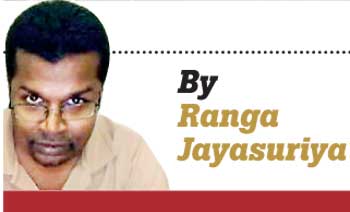Reply To:
Name - Reply Comment
Last Updated : 2024-04-20 00:00:00

 n the not so distant past in this country, a President pushed through the House of Parliament an Amendment to the Constitution in order to immortalize his reign, to concentrate powers of the state in his office and to turn Parliament into a rubber stamp. He orchestrated a crossover of the Opposition MPs to secure the required two third majority in the House, and Parliamentarians in his party complied with his wish like good sycophants. Few outside the House dared to protest, not least because he did not give too hoots about such treacherous misbehaving. Rather those mortals preferred to avoid the prospect of being taken for a white van ride, and being named posthumously as a traitor.
n the not so distant past in this country, a President pushed through the House of Parliament an Amendment to the Constitution in order to immortalize his reign, to concentrate powers of the state in his office and to turn Parliament into a rubber stamp. He orchestrated a crossover of the Opposition MPs to secure the required two third majority in the House, and Parliamentarians in his party complied with his wish like good sycophants. Few outside the House dared to protest, not least because he did not give too hoots about such treacherous misbehaving. Rather those mortals preferred to avoid the prospect of being taken for a white van ride, and being named posthumously as a traitor.
It takes a thick skinned hypocrite to vote with both hands for the earlier embellishment of the power of authoritarian presidency and now to demand a referendum on the Economic and Technology Cooperation Agreement (ETCA) with India. (Now, the Joint Opposition has done so)
Also in those not so distant days, a Chief Justice who delivered a ruling against the ‘Divi Neguma’ Bill was unceremoniously sacked and the court that objected to the constitutionality of her impeachment was forced into a humiliating capitulation. MPs signed in a blank paper which was later annexed to the impeachment motion of the then Chief Justice Shirani Bandaranayake. Last week, when the Supreme Court issued a restraining order on the VAT revision, the ruling was both proof of the independence of courts and a testimony of how far we have come since those inglorious days in the past.

Then there were VAT protests in the form of a coordinated shut down of shops. Few years ago, traders put up silently with extortions by the thugs associated with then ruling party MPs. A leading tea buyer who was asked to pay a hefty ransom, rather than going to the police, chose to lock himself at home, bringing the Colombo tea auction to a grinding halt.
Now the paternalistic traders of Pettah and other cities have staged the Hartal, as they claim, to protect the interests of the customers. But, one cannot help, but feel an extension of the old regime in the whole affair. Only on two occasions in recent memory that shops were closed in this pattern; first during the JVP’s blood soaked insurgency in the South and the other, by the terrorists of the LTTE in the North. Both campaigns were driven by a sinister political agenda, one to hijack the State and the other to destabilize it. One would hope that the third, may not be a precursor to another devious plot.
It is not easy to turn around an economically misgoverned country. That would require painful readjustments. The former regime’s economic record is mixed at best. Ex-President Mahinda Rajapaksa should be credited with putting in place much needed infrastructure. In most cases, he did so efficiently, partly thanks to the Chinese contractors, but more so due to his government’s efficient takeover of land for such projects. Such measures taken in conjunction with compensation at market value were necessary evil to fast track development in a country at our development level. However, unfortunately though, MR also built a lot of white elephants, which would not be commercially viable any time soon. Then he busted US $ 2.5 billion in a futile attempt to defend the rupee. The country’s exports as a share of the GDP fell from 30 per cent ten years ago to 13.75 per cent in 2015. The government’s tax revenue as a share of the GDP dropped to 10 per cent. The already bloated government sector workforce was doubled under his regime, many of the new recruits became passengers in their assigned public institutions. No wonder his successor now has to pay for MR’s misplaced altruism.
Good economics is not always good politics. The new administration is now in an unenviable position as it struggles to implement painful adjustments to an economy that was for so long dictated by short term political imperatives. This transitional phase of the economy is testing time not just for the government but also for the larger democratic agenda it has promised to forge ahead with. These are also chaotic times for this is when vested interests of myriad of interest groups compete and collude.  More so since active expression of such dissent was not possible a few years ago.
More so since active expression of such dissent was not possible a few years ago.
However, this is also the time the government’s commitment, not just for democracy but also for economic reforms are tested. Recent history of political economy would reveal that democracy had failed in the long run, when policy makers discounted economic logic for short term populism. Countries that later emerged as practising democracies or those that are on the trajectory to be so in South East Asia and Latin America had their leaders’ will to withstand short term populist imperatives tested. Though they were not quintessential democrats, those leaders had long term visions for their countries.
In Sri Lanka, political leaders, by and large, failed that test. Short-term fixes sapped the long-term potentials of the country. Their failure in economy inevitably spilled into democracy, which deteriorated over the time.
Take for instance the demand by the GMOA and the university students for the nationalization of a private medical college in Malabe. In the late 80s, then President Ranasinghe Premadasa caved into one such earlier protest and took over a private medical school in Ragama which later became the Medical faculty of the Kelaniya University. The decision, of course, increased opportunity of free education, however, it greatly diminished the appetite of the private sector to invest in higher education. It killed an earlier opportunity for Sri Lanka to become an education hub. Countries such as Malaysia speared ahead and are now ranked among leading destinations for education.
One could only hope and pray that the current administration would learn from the misgivings of its predecessors and assertively push for a broader reform agenda, not just in democracy, but also in economy.
YOLO lankan Monday, 18 July 2016 03:10 PM
great article.

Add comment
Comments will be edited (grammar, spelling and slang) and authorized at the discretion of Daily Mirror online. The website also has the right not to publish selected comments.
Reply To:
Name - Reply Comment
On March 26, a couple arriving from Thailand was arrested with 88 live animal
According to villagers from Naula-Moragolla out of 105 families 80 can afford
Is the situation in Sri Lanka so grim that locals harbour hope that they coul
A recent post on social media revealed that three purple-faced langurs near t